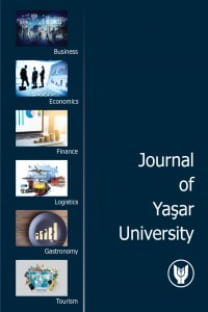SÜRDÜRÜLEBİLİRLİK PERFORMANS KARNESİ
Şirketler azalan kaynaklar, değişen ve artan yatırımcı beklentileri karşısında çevresel, sosyal ve ekonomik alanlarda daha hesap verebilir duruma gelmeleri gerektiğini kavramaya başlamışlardır. Bu bağlamda sürdürülebilirlik raporlaması, içsel ve dışsal kullanım açısından yöneticilere analiz için bir araç vererek ve paydaşlara daha fazla şeffaflık sağlayarak, çoğu işletme için rekabetçi olabilmelerini vaat eden büyüyen bir eğilimdir. Yönetim muhasebeciler, sürdürülebilirliğin ekonomik, çevresel ve sosyal göstergelerini, Kaplan ve Norton’un “Performans Karnesi” ile bütünleştirerek karar vericilere işletmenin kısa ve uzun dönemli karlılığı ile uzun dönemli varlığını sürdürmeye yönelik bakış açısı veren anlamlı finansal ve finansal olmayan sürdürülebilirlik ölçüleri üretebilirler. Bu makalede kurumsal sürdürülebilirlik stratejisinin ana yönetim sistemine daha iyi entegre edilebilmesi için performans karnesinin nasıl kullanılabileceği analiz edilmektedir.
Anahtar Kelimeler:
Sürdürülebilirlik, sürdürülebilirlik raporlaması, performans karnesi, sürdürülebilirlik performans karnesi
SÜRDÜRÜLEBİLİRLİK PERFORMANS KARNESİ
In the face of diminishing resources, changing and rising investor expectations, companies have begun to realize that they have to be more accountable in the environmental, social and economic fields. In this context, sustainability reporting, in terms of both internal and external use, is a growing trend that promises to be competitive to most companies, by giving managers a tool for analyzing and providing greater transparency to stakeholders. Management accountants by integrating economic, enviromental and social indicators of sustainability with Kaplan and Norton’s “Balanced scorecard”, produce meaningful financial and non financial sustainability measures that give decision makers short and long term business profitability and long term existence perspective. In this article, using BSC to better integrate corporate sustainability strategy to core management system is analyzed.
Keywords:
Sustainability, sustainability reporting, balanced scorecard, sustainability balanced scorecard,
___
- Akıncı Sevcan Kılıç -Mehmet M Akıncı (2010). “Sürdürülebilir Kalkınmaya Katkı Bağlamında Örgütlerin Çevresel Performansları ve Performans Değerlendirme Teknikleri”, Atatürk Üniversitesi İktisadi ve İdari Bilimler Dergisi, 24, 1: 193-207.
- Ates Zelal-Marian Buttgen (2011). “Corporate social responsibility in the public service sector: Towards a sustainablility balanced scorecard for local public enterprises”, Journal for Public&Nonprofit Services, 34,3:346-360.
- Başar A Banu -Mehmet Başar (2006). “Sosyal Sorumluluk Raporlaması ve Türkiye’deki Durumu”, Sosyal Bilimler Dergisi, 2: 213-230.
- Bieker Thomas-Bernhard Waxenberger (2002). Sustainability Balanced Scorecard and Business EThics Developing a Balanced Scorecard for Integrity Management, 10Th Confereence of the Greening of Industry Network
- Butler Janet B. -Sandra Cherie Henderson-Cecily Raiborn(2011). “Sustainability and the Balanced Scorecard: Integrating Green Measures into Business Reporting”, Management Accounting Quarterly, 12, 2: 1-10.
- Dias-Sardinha Idalina-Lucas Reijnders-Paula Antunes (2007). “Developing Sustainability Balanced Scorecards for Environmental Services: A study of Three Large Portuguese Companies”, Environmental Quality Management, Summer: 13-34.
- Epstein Marc J.-Priscilla S. Wisner (2001). “Using A Balanced Scorecard To Implement Sustainability”, Environmental Quality Management, Winter, 11,2: 1-10.
- Figge Frank-Tobias Hahn, Stefan Schaltegger-Marcus Wagner, (2002a). “The Sustainability ScorecardTheory and Application of a Tool for Value Based Sustainability Management”, Greening of Industry Network Conference, Gothenburg.
- Figge Frank-Tobias Hahn, Stefan Schaltegger-Marcus Wagner (2002b). “The Sustainability ScorecardLinking sustainability management to business strategy”, Business Strategy and the Environment, 11,5: 269-284.
- Figge Frank-Tobias Hahn, Stefan Schaltegger-Marcus Wagner (2003c). “The sustainability Balanced Scorecard as a Framework to Link Environmental Management Accounting with Strategic Management”, Environmental Management Accounting-Purpose and Progress, Ed. Martin Bennett, Pall M. Rikhardsson, Stefan Schaltegger, Kluwer Academic Publishers, Netherlands.
- Gates Stephan-Christophe Germain (2010). “Integrating Sustainability Measures into Strategic Performance Measurement Systems:An Empirical Study”, Management Accounting Quarterly, 11,3:1-7.
- Gminder Carl Ulrich-Thomas Bieker (2002). “Managing Corporate Social Responsibility by Using the Sustainability Balanced Scorecard”, Greening of Industry Network Conference June, Goteborg.
- Jain Radhika P.-Raquel Benbunan Fich-Kannon Mohan (2011). “Assessing Green IT Initiatives Using The Balanced Scorecard”, IT Pro, January/February: 26-32.
- Kaygusuz Sait Y (2005). “Yönetim Muhasebesinin Performans Yönetimi Fonksiyonunda Geldiği Son Nokta: Balanced Scorecard”, İş Güç Endüstri İlişkileri ve İnsan Kaynakları Dergisi, 7,1: 81-103.
- Möller Andreas -Stefan Schaltegger (2005). The Sustainability Balanced Scorecard as a Framework for Eco-efficinecy Analysis, Journal of Industrial Ecology, Vol 9, N 4, Fall: 73-83.
- O’rourke John (2011). Sustainability Matters, Cost Management, 25, 5, Sept/Oct: 6-15.
- Schaltegger Stefan- Florian Ludeke Freund (2011). The Sustainability Balanced Scorecard Concept and the Case of Hamburg Airport, www.leuphana.de/csm .
- Schaltegger, Stefan (2011), “Sustainability As A Driver For Corporate Economic Success”, Society and Economy, 33, 1:15-28.
- White Gwendolen (2005). “How to Report a Company’s Sustainability Activities”, Management Accounting Quarterly, Fall, 7, 1: 36-43.
- WCED report, http://conspect.nl/pdf/Our_Common_Future-Brundtland_Report_1987.pdf https://www.globalreporting.org/resourcelibrary/Turkish-G3-Reporting-Guidelines.pdf http://www.imkb.gov.tr/datum/surdurulebilirlik/surdurulebilirlik_ozet_bilgiler.pdf
- ISSN: 1305-970X
- Başlangıç: 2006
- Yayıncı: Yaşar Üniversitesi
Sayıdaki Diğer Makaleler
ÖZ BENLİK DEĞERLENDİRMELERİ İLE İŞ VE YAŞAM DOYUMU İLİŞKİSİNİN SORGULANMASINA YÖNELİK BİR ARAŞTIRMA
Pinar Süral Özer Güler TOZKOPARAN
SÜRDÜRÜLEBİLİRLİK PERFORMANS KARNESİ
Editorial Board / Editör Kurulu
Letter From the Editor / Editör Mesajı
About the Journal / Dergimiz Hakkında
Guidelines for Publication / Yayın İlkeleri
2011 UNIVERSIADE KIŞ OYUNLARININ ERZURUM EKONOMİSİ ÜZERİNDEKİ ETKİLERİ: BİR UYGULAMA
